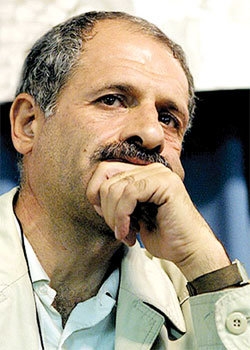Dismissed University Professor Awaits Response to Request for Reinstatement

Photo legend: Mohammad Sharif: “I submitted my request along with all the documents, but despite all the things that are being said, no action has been taken about me till now. Nonetheless I am still hopeful that I would be invited back to teach.”
Mohammad Sharif, lawyer and professor of law at Allameh Tabatabaee University who was dismissed from his academic job in April 2011, told the International Campaign for Human Rights in Iran that after recent statements by Jafar Tofighi, the Acting Minister of Science, about the return of academic staff dismissed during recent years, he submitted his request to return to work to the Ministry of Science but has not yet received any response.
Expressing hope for the “realization of the promise to return the dismissed professors,” Mohammad Sharif told the Campaign that during the two and a half years since his dismissal, he has had to find other jobs to make his living.
Mohammad Sharif had worked for 25 years as a member of the Allameh University’s faculty and as a visiting scholar. In April of 2011 he was was abruptly dismissed without any explanation. Sharif had represented many political prisoners in the aftermath of the disputed 2009 presidential election, including Ahmad Zeidabadi, Shiva Nazar Ahari, Zeinab Jalalian, and Massoud Bastani. He also represented several faculty members who had been dismissed earlier, such as Morteza Mardiha. At the time of his dismissal, he was a tenured professor at the Allameh Tabatabaee University.
In September, Acting Minister of Science Jafar Tofighi announced that a working group had been formed inside the Science Ministry to review the requests of academic members who had been dismissed or forced into retirement. According to Tofighi, dismissed or forcibly retired faculty members could file their complaints with the working group and eventually a committee would review the complaints.
“After Mr. Tofighi’s statement, I went to the Ministry of Science about two weeks ago and submitted my request along with all the documents, but despite all the things that are being said, no action has been taken about me till now. Nonetheless I am still hopeful that I would be invited back to teach. During this period, I did not abandon my academic studies and I wrote a book about the legal conditions of Iranian ethnic minorities, focusing on the Kurdish ethnic minority, which is ready to be published,” Mohammad Sharif told the Campaign.
In a previous interview with the Campaign, Mohammad Sharif explained the reasons for his dismissal from his position. “I think working on human rights cases was the reason for my dismissal, because there was no other incident to cause this. Though I’ve represented numerous individual rights and public freedom cases, I have always tried to remain within the framework of laws I did not believe in, and I never left that framework. I have been a law-abiding lawyer. I seldom gave interviews, and to the extent possible, I avoided talking to foreign media so that I could continue my services,” he told the Campaign.
He also told the Campaign during this interview in 2011 that his dismissal letter was signed by his former student and that he had filed a complaint with the Administrative Justice Court against the Allameh Tabatabaee University officials for his dismissal. Two and half years after his complaint with the Administrative Justice Court, his case has not yet been reviewed, he told the Campaign.
Asked how he has earned a living since his dismissal from the university, Mohammad Sharif said, “Because during the past 25 years my livelihood depended on the salary I received from the university at the end of the month, I faced an economic shock after my dismissal and I was forced to do other jobs. I represent human rights cases and these cases are essentially pro bono, therefore I was unable to earn a living through my legal practice for several years. Additionally, in our country when a lawyer becomes known for defending human rights cases, people fear giving him cases about other subjects because they are concerned that the political fame of the lawyer may affect their cases adversely.”
During former president Mahmoud Ahmadinejad’s administration from 2005 to 2013, many academics in the humanities and other disciplines were either dismissed or forced into retirement, such as Morteza Mardiha, Ali Asghar Beheshti Shirazi, Mohammad Shahri, Amir Nasser Katouzian, Karim Mojtahedi, Ali Sheikholeslam, Hassan Basharieh, Mohammad Erfani, Abolghasem Gorji, Mohammad Ashouri, Jamshid Momtaz, Mohammad Reza Shafiee Kadkani, and Reza Davari.






